Watch the 2026 Plenary Sessions
-
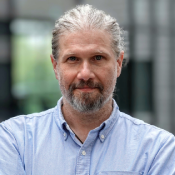
Laser Science Visionary Speaker
Mete AtatüreProfessor of Physics – Head of the Cavendish Laboratory, University of Cambridge, United Kingdom
Defects are what gives diamond colour. They also offer a route towards solid-state quantum technologies. Today, there is a growing list of material platforms, whose defects can couple to quantum light in an integrated and scalable way. This talk will highlight recent advances in harnessing these atomic-scale quantum systems for applications ranging from quantum networks to sensors.
Mete Atatüre received his Bachelor of Science degree in 1996 from Bilkent University Physics Department in Turkey. Then, he joined the Quantum Imaging Laboratory at Boston University for his PhD studies. From 2002 to 2007, he worked as a Postdoctoral Fellow in the Quantum Photonics Group at ETH Zurich. He joined the Cavendish Laboratory in June 2007 as a University Lecturer, was promoted to a Readership in 2011 and to a Professorship in 2015.
-
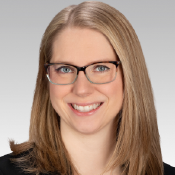
Frontiers in Optics Visionary Speaker - Space Optics
Becky BorrelliChief Technologist – Space Superiority & Imaging Principal Fellow Space Superiority & Imaging Division Space & Airborne Systems, United States
This talk explores advancements in optical systems for space applications, covering topics such as additive manufacturing of metals and glass, composite optics, mirror replication, and cutting-edge on-orbit wavefront sensing and control for assured system performance. Becky Borrelli is an L3Harris Principal Fellow and Chief Technologist working in the Space Superiority & Imaging Division (SSID), which offers complete earth observation, weather, geospatial, space exploration, space protection and intelligence solutions including advanced sensors and payloads, ground processing, analytics and space segment development.
Space Superiority & Imaging is focused on innovative and accelerated development of telescopes, electro-optical payloads, electronics, precision mechanisms, on-board processing, system operation and maintenance and other solutions to meet the needs of the Title 10, Title 50, Civil/Science and advanced research communities.
Investigator for multiple R&D projects and helped develop and implement technologies such as Replicated Composite Optics, additively manufactured Invar, additively manufactured glass, specialty coatings, novel optical processing and testing approaches. She oversaw the execution of R&D projects in disciplines ranging from optics to electronics to algorithms.
Since 2022, Becky has led the Precision Optics Leadership Team. A matrixed organization of leaders within L3Harris responsible for the dsign, analysis, manfuacturing and testing of precision optics.
In 2025, she took on the additional role of Chief Technologist for Space Superiority & Imaging. She leads a team of chief engineers and principal investigators that are in charge of technology roadmapping and execution of the entire R&D portfolio valued at $20M per year.
In recognition of her expertise and broad impact Becky was named a L3Harris Technical Fellow in 2020 and Principal Fellow in 2022.
Becky has a Bachelor of Science in Honors Physics and a Bachelor of Science in Mathematics from Purdue University. She earned her Ph.D. in Optics from the University of Rochester in 2012.
Becky joined L3Harris in 2012 as an optical metrology engineer, responsible for precision metrology of optical components and systems. She worked on projects such as the 3.2-meter M2 for the Vera C. Rubin Observatory and the optical testing of the James Webb Space Telescope.
In 2017, Becky was named the Engineering Manager for the newly created Optical Engineering organization. She was responsible for 40 employees including optical design engineers and optical metrology engineers. She established optics as a valued discipline within the L3Harris and established connections with key university affiliates.
In 2019, Becky transitioned to leading Research & Development (R&D) and strategy for the Imaging Systems division. She served as Principal Fellow in 2022. -
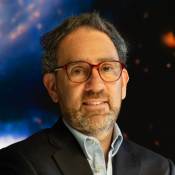
Frontiers in Optics Visionary Speaker - Space Optics
John W. ConklinProfessor of Mechanical and Aerospace Engineering, University of Florida, United States
Advancements in precision laser metrology and accelerometry over the next two decades will enable new observations from space that will answer fundamental questions about our changing climate, the existence of life on distant planets, and the fundamental nature of our universe. This presentation is a preview of what is to come in satellite geodesy, precision coronagraphy, and gravitational wave observation.
John W. Conklin is the Don D. and Ruth S. Eckis Professor of Mechanical and Aerospace Engineering at the University of Florida and Assistant Director of the UF Astraeus Space Institute. He joined the UF faculty in 2012 after a three-year research associateship at the W.W. Hansen Experimental Physics Laboratory at Stanford. He received his BS and MEng degrees from Cornell and PhD from Stanford. In 2011, John was the Fulbright Junior Lecturer at the University of Trento in Italy. He has served as Vice-chair and member of NASA’s Astrophysics Advisory Committee. John has been awarded the NASA Group Achievement Award in 2005 for the Gravity Probe B science team, the Balhaus Prize in 2009 for best PhD thesis in Aeronautics and Astronautics at Stanford, the Zeldovich Medal in 2010, the NASA Early Career Faculty Award in 2014, NASA’s Nancy Grace Roman Technology Fellowship in Space Astrophysics for Early Career Researchers in 2015 and the Space Science Award from AIAA in 2016.
-
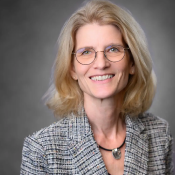
Laser Science Visionary Speaker
Mette GaardeLes and Dot Broussard Alumni Professor of Physics at Louisiana State University omputer Engineering, UCLA, United States
High-harmonic generation (HHG) can be an exquisite spectroscopic probe of both structure and dynamics in condensed-phase systems, with a sub-femtosecond time-resolution matching the natural time scale of electrons. I will discuss recent progress in HHG spectroscopy in crystalline solids, and provide an outlook on its sensitivity to local structure and dynamics in liquids.
Mette Gaarde is the Les and Dot Broussard Alumni Professor of Physics at Louisiana State University (LSU). She is an expert on the theory of ultrafast laser-matter interactions in atomic, molecular, and condensed-phase systems and studies a wide range of ultrafast dynamics. Gaarde received her M.Sc. and Ph.D. degrees in 1994 and 1997, from Copenhagen University in Denmark, with much of her graduate work performed at Lund University in Sweden. She is a Fellow of Optica and of the American Physical Society (APS), and was named a 2023 Distinguished Research Master at LSU. She recently served as Chair of the APS Division of Atomic, Molecular, and Optical (AMO) Physics, and is currently co-Chair of the National Academy of Sciences Committee on AMO Sciences.
-
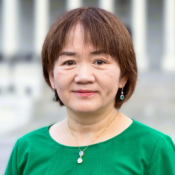
Frontiers in Optics Visionary Speaker - Virtual Reality and Augmented Vision
Hong HuaHong Hua, Professor, James C. Wyant College of Optical Sciences, University of Arizona, United States
Optical technologies fundamentally play a pervasive role in many of the recent breakthroughs, enabling human-centric virtual and augmented display and human interface technologies. In this talk, I will share historical highlights, demonstrate recent examples and advancements, and discuss emerging technologies and challenges in developing high-performance virtual and augmented reality display systems.
Dr. Hong Hua is currently the Jean M. Bennett Optica endowed Chair Professor at the James C. Wyant College of Optical Sciences, University of Arizona. An expert in 3D displays, head-worn systems for AR/VR and medical imaging, she holds over 60 US patents and 95+ foreign patents and has authored 300+ publications. Dr. Hua is a Fellow of SPIE, Optica, NAI and a member of the IEEE VGTC VR Academy. Her work has earned numerous awards, including an NSF CAREER Award, Google and Intel faculty awards, 2024 American Innovator Award and the 2024 Inventor of the Year by University of Arizona. She has served in leadership roles across major conferences and journals, and continues to shape the field through research, innovation and professional service.
-
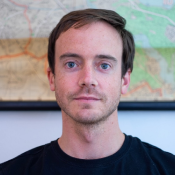
Frontiers in Optics Visionary Speaker - Machine Learning
Tyler HughesHead of Photonics, Flexcompute, United States
Machine learning and electromagnetics share deep mathematical foundations. I’ll overview fundamental ML concepts and show how they map naturally onto photonic device design—from inverse design, to surrogate modeling and GPU-accelerated simulation. We'll explore how the application of these ideas unlocks a new paradigm for photonic design and simulation.
Tyler Hughes is Head of Photonics at Flexcompute Inc. He is one of the principal developers of the Tidy3D electromagnetic simulation tool. He completed his PhD at Stanford University in 2019, working with Professor Shanhui Fan on inverse design and analog machine learning using photonics.
-
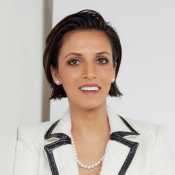
Laser Science Visionary Speaker
Prineha NarangProfessor of Physical Sciences and Electrical and Computer Engineering, UCLA, United States
Nature's most fascinating phenomena occur far from equilibrium - from the swirling storms of Jupiter to the dance of quasiparticles in quantum systems. While textbooks might portray physics through the lens of equilibrium, our Universe is dynamic, perpetually seeking but never reaching balance. This lecture will discuss both fundamentals of nonequilibrium dynamics in quantum matter and applications of these in quantum devices. Advances in theoretical understanding and computational approaches to correlated states in quantum matter, paired with leading experiments in ultrafast nonlinear optical spectroscopy now allow us to reveal emergent states created by strongly non-equilibrium external drives. Following a pedagogical introduction to these advances, this lecture will present the latest results in accessing observables in nonequilibrium interactions with coupled dynamics of spins, nuclei and light.
Dr. Prineha Narang is a Professor of Physical Sciences and Electrical & Computer Engineering at UCLA, with research spanning quantum materials, non-equilibrium dynamics, and quantum information science. Previously, she was a faculty member at Harvard and held research roles at MIT and HUCE. She holds a Ph.D. from Caltech and has received numerous honors, including the Guggenheim Fellowship, Maria Goeppert Mayer Award and NSF CAREER Award. Dr. Narang has led DOE and NSF research centers and serves in leadership roles across APS, Optica and MRS. She is an Associate Editor at ACS Nano and Applied Physics Letters.
Plenary Speakers
-
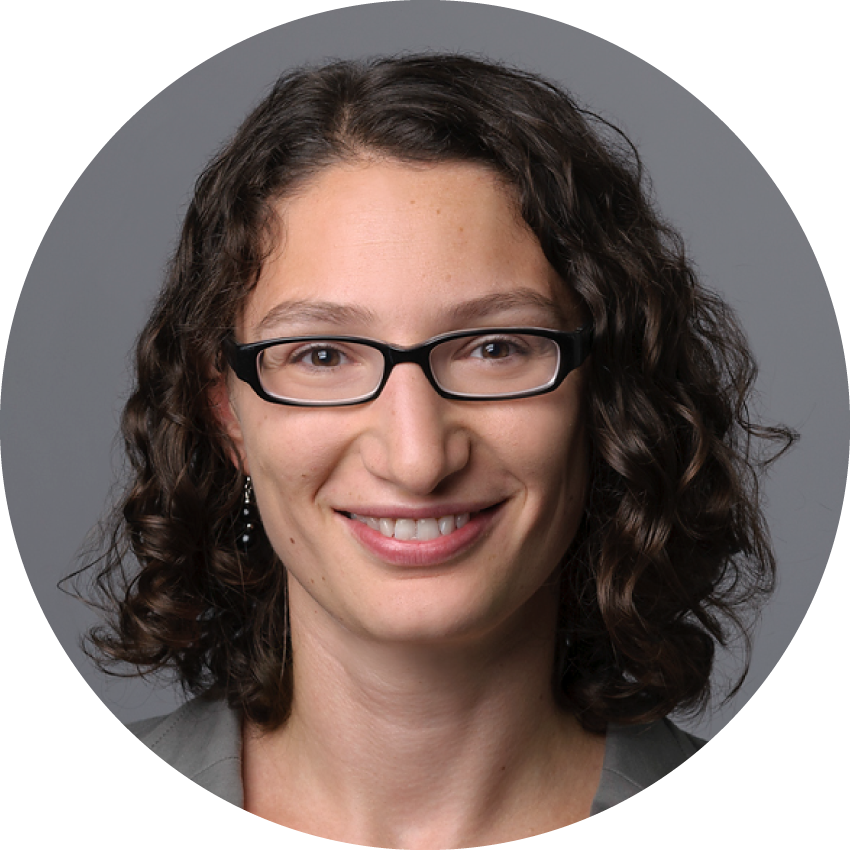
Professor Clara Saraceno
Head Chair of Photonics and Ultrafast Laser Science, Ruhr University Bochum, Germany
Terahertz light is becoming a ubiquitous tool in many scientific fields and is also increasingly deployed in industrial settings, in inspection, non destructive testing and other security applications. Terahertz wave "see through" optically opaque objects, and can provide rich spectroscopic information. In science, they can excite and probe a plethora of low energy phenomena in condensed matter. While these systems have seen tremendous progress in last decades, efficient, and lab-based THz generation methods combining ultra-broad broad bandwidth and high dynamic range (e.g., as provided by high THz average power and correspondingly high repetition rate) remain very rare, and most measurements remain too slow, which limits their wide applicability. In recent years, an emerging research area has gained speed: increase the average power pf broadband THz sources using state-of-the-art, high-average power ultrafast Yb-gain based lasers providing multi-100-W to kilowatt average-power levels as excitation sources. Recent results have allowed to reach power levels in the THz domain in the multi-ten to multi-hundred milliwatts in different repetition rate regions – which was previously restricted to accelerator -type THz sources. This progress opens the door to a multiplicity of new and old research areas to be re-visited. In this talk, we review recent progress in the generation of high-average power THz-TDS. We will present the state-of-the-art of high-power ultrafast laser sources with potential for driving THz sources, current technological challenges in scaling THz average power, and applications areas that could potentially benefit from these novel sources.
Clara Saraceno was born in Argentina in 1983. She completed a dual degree program in France and earned her doctorate in physics from ETH Zurich in 2012. After a postdoctoral stay at ETH Zurich and University of Neuchatel she received the Sofja Kovalevskaja Prize from the AvH (2015) and started the Photonics and Ultrafast Laser Science Group as Associate Professor in the Faculty of Electrical Engineering at Ruhr University Bochum. In 2018, she was awarded an ERC Starting Grant followed in 2024 by a Consolidator Grant. She is a Fellow of Optica since 2022. Prof. Saraceno is now a full professor at RUB and her current research interest spans from Laser technology to Terahertz technology, laser-plasma interactions among others.
-
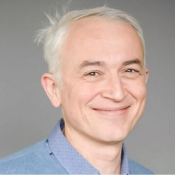
Vladan Vuletić
Lester Wolfe Professor of Physics, Massachusetts Institute of Technology, United States
Atom-light interactions are at the heart of atomic and quantum physics, enabling a wide range of applications from precision measurements to quantum information processing. Many of these applications rely on, or benefit from, quantum entanglement. Professor Vladan Vuletić will discuss two such applications, spin squeezing and Rydberg array quantum computing with neutral atoms.
Professor Vladan Vuletić was born in Pec, Serbia, Yugoslavia, and educated in Germany. In 1992, he earned the Physics Diploma with highest honors from the Ludwig-Maximilians-Universität München, and in 1997, a PhD in Physics (summa cum laude) from the same institution. He then went on to work with Professor Steven Chu at Stanford University as a Lynen Fellow of the Humboldt Foundation. In 2000, he was appointed an Assistant Professor in the Department of Physics at Stanford and in June 2003 accepted an Assistant Professorship in Physics at MIT. He was promoted to Associate Professor in July 2004, and to Full Professor in July 2011.
